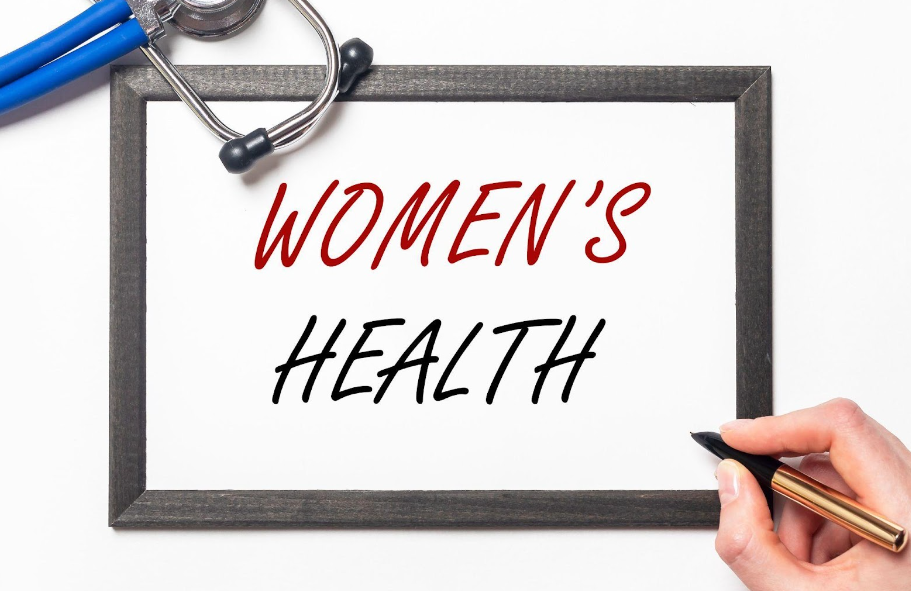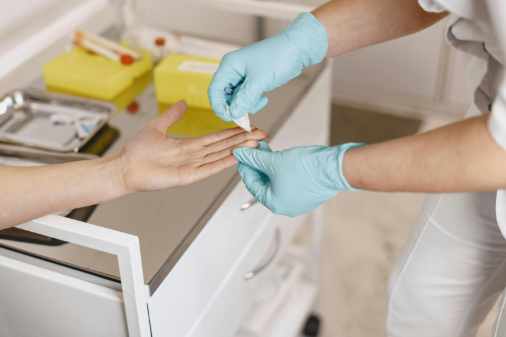Everything You Need to Know About Women's Health Services
Everything You Need to Know About Women's Health Services

Taking care of your overall health with regular checkups is important. For women, preventative care through wellness checkups is essential. Do you know that it is highly recommended to have at least one annual exam? Catching and addressing health problems early is always safer and more cost-effective.
At Bayou Bend Health System, we are committed to taking care of your health and well-being, which is why we decided to come up with this detailed overview of what our
women’s health services include.
Overview of Women’s Health Services
We offer an array of services, including annual wellness checkups, pap smears, breast exams, hormone therapy, birth control options, and an array of therapeutic and educational services. Let’s take a closer look at each of these!
What Is a Wellness Checkup?
Starting at age 13, every woman should have annual checkups. These exams help detect any diseases at early stages or address any gynecological symptoms, such as irregular menstrual cycles, swelling, abnormal vaginal bleeding, vaginal pain, itching, or any unusual changes in the breast.
Physical Exam
The overall purpose of a physical examination is to assess your health by taking samples of your urine and blood. Subsequent lab analysis is necessary to double-check that you don’t have any hormone problems or kidney infections.
Breast Exam
Unfortunately, breast cancer accounts for about 30% of all new female cancers each year, which makes it one of the most widespread types of cancer in the United States. Not all women with breast cancer show symptoms, which is why regular breast cancer screening is important.
During a
clinical breast exam, a healthcare provider would ask you to raise your arms to assist in examining the breasts. Massaging each breast in small, circular movements is effective for finding any possible lumps or cysts.
Pap Smear
This test helps detect early signs of cervical cancer, which is a type of cancer that starts in the cells of the cervix. Healthcare providers usually insert the speculum and use a brush, spatula, or swab to gently scrape tissue cells from the surface of the cervix. The reason for this is that cervical cancer develops gradually, with the first stage being the appearance of abnormal cells in the tissues. This phenomenon is known as dysplasia. Unless the abnormal cells are removed, there is a high risk of them becoming cancerous.
A pap test is
highly efficient in preventing cervical cancer from developing, which is why we recommend that you do it regularly.
Pelvic Exam
This exam is necessary for detecting early forms of cancer, sexually transmitted diseases, and other causes of inflammation. For this exam, you will be asked to lie down with your feet elevated on the leg rests. There’s no need to worry. The exam is painless and extremely beneficial for making sure you are healthy.
Hormone Therapy
Hormone therapy refers to the use of medication that contains female hormones to replace those that are lacking or are not produced in sufficient amounts. There may be several reasons why your body might stop producing female hormones or produce them in lower amounts than what’s considered normal. This could happen during menopause or due to amenorrhea.
If you are going through menopause, hormone therapy could help address such common symptoms as hot flashes and vaginal discomfort. Additionally, hormone therapy has been shown to prevent bone loss and reduce fractures.
Amenorrhea is a condition in which menstrual bleeding does not occur in girls or young females. The reasons for it are diverse, ranging from ovulation problems to eating disorders or excessive exercise. Possible complications of amenorrhea are osteoporosis, which is a gradual thinning of bones, and loss of fertility in cases where amenorrhea is caused by a lack of ovulation.
Treatment for amenorrhea may include hormone therapy with progesterone and birth control pills. However, there are a range of risk factors associated with hormone treatment, including the increased risk of blood clots, heart disease, and breast cancer. Therefore, it is paramount to consult with an expert healthcare provider before starting any hormone therapy. Other treatments for amenorrhea include medicine to treat thyroid disorders, surgery for birth defects, changes in diet or sports routine, and calcium supplements.
At Bayou Bend Health System, we work closely with our patients to develop the most suitable treatments that fit their unique situations.
Birth Control Options
If you are leading a sexually active life but are not planning to have children at the moment, our expert healthcare providers can also help you choose the right birth control option that will work for you.
There are several birth control options available for women. It’s important to keep in mind that each comes with its own advantages, disadvantages, and effectiveness levels.
Combined Oral Contraceptives (Birth Control Pills): These are pills that combine synthetic estrogen and progestin hormones. They prevent ovulation by thickening cervical mucus to impede sperm movement and thinning the uterine lining. Birth control pills are highly effective when taken correctly.
Progestin-Only Pills (Mini Pills): Unlike combined pills, mini pills only contain progestin hormones. They also prevent pregnancy by thickening cervical mucus and sometimes by inhibiting ovulation. Mini pills are suitable for women who cannot tolerate estrogen or are breastfeeding.
Contraceptive Patch: This is a small adhesive patch worn on the skin that releases hormones (estrogen and progestin) into the bloodstream. It works similarly to birth control pills and is replaced weekly.
Contraceptive Ring: This is a flexible plastic ring inserted into the vagina, releasing estrogen and progestin. It remains in place for three weeks, after which it is removed for a week to allow menstruation.
Intrauterine Device (IUD): IUDs are small, T-shaped devices inserted into the uterus. There are two types: hormonal IUDs that release progestin and copper IUDs. Hormonal IUDs prevent pregnancy by thickening cervical mucus and thinning the uterine lining, while copper IUDs create an environment that is toxic to sperm.
Birth Control Implant: This is a small, flexible rod inserted under the skin of the upper arm. It releases progestin and prevents pregnancy for up to several years.
Depo-Provera (Birth Control Shot): This is an injection of progestin administered every three months to prevent pregnancy.
Female Condom: A barrier method worn inside the vagina to prevent sperm from reaching the cervix.
Diaphragm: A shallow, flexible cup inserted into the vagina to cover the cervix and block sperm.
Cervical Cap: This device is similar to a diaphragm, but is smaller and fits directly over the cervix.
Fertility Awareness-Based Methods: These involve tracking menstrual cycles and fertility signs.
Emergency Contraception (Morning-After Pill): This is a high-dose progestin pill or a combination of progestin and estrogen pills taken after unprotected sex to prevent pregnancy.
Women’s health is important, and we highly recommend that you never put it aside. At
Bayou Bend Health System, we are proud to offer a women’s health program that puts your needs first! Dr. Craig Gauthier and Nurse Practitioner Tiffany Waguespack are board-certified and offer a variety of services to help you take care of your health and stay safe.
Contact us today if you have any questions about our services or would like to schedule a consultation.



